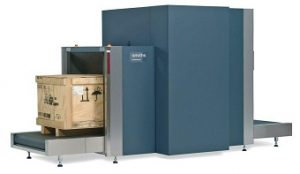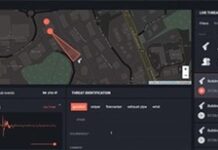
Smiths Detection now offers reliable and accurate lithium battery detection as an option on the Hi-Scan 100100V-2is and 100100T-2is scanners, with other conventional X-ray systems to follow.
Existing installations can also be upgraded on site. This is the first module from a series of smart and adaptable algorithms for the automatic detection of an ever expanding list of dangerous, prohibited and contraband goods and substances.
Taking the deep learning approach, Smiths Detection is collaborating with customers to build a huge library of images from which the algorithms can ‘learn’ to detect many other items. “The lithium battery development follows IATA’s recommendations regarding Dangerous Goods and is aimed mainly at the air cargo sector,” explained Matt Clark, VP Technology & Product Development, Smiths Detection. “It is designed to tackle the tangible threat posed by lithium batteries, which have the potential to ignite when airborne. In addition to extending this option to a full range of systems, we plan to expand these augmented detection capabilities to goods such as weapons, flammable liquids, currency and drugs.”
As it is particularly suitable for break-bulk cargo screening and is already popular with air freight handlers, the HI-SCAN 100100 series was first in line for the lithium battery option.
The combination of excellent performance and small footprint makes these scanners ideal wherever parcels with diverse shapes and sizes need to be screened. Positioned at 90° to each other, two 160 kV generators speed up the inspection time of tightly packed items by providing both horizontal and vertical views. For further efficiency, there is a choice of conveyor heights and a maximum load of 220kg. Hi-Scan 100100 series scanners are compliant with EU regulation 2015/1998.
The lithium battery kit uses an external evaluation computer to host the detection software, which analyses the contents and “frames” any detected batteries – this data can be shown on the main system monitor or on an additional screen. Adding this detection function does not affect the speed of overall image evaluation and little or no training is required. It is available now as an option on new Hi-Scan 100100 series scanners or as an upgrade for existing machines.











